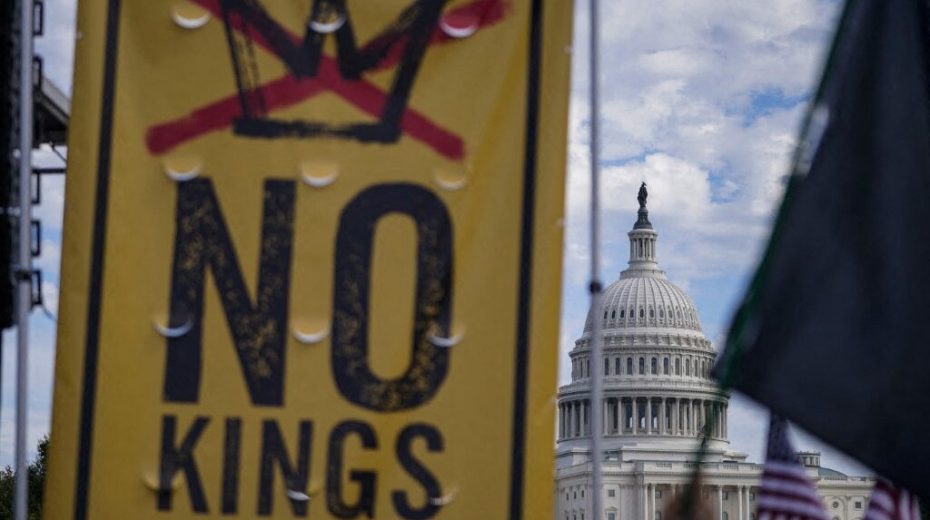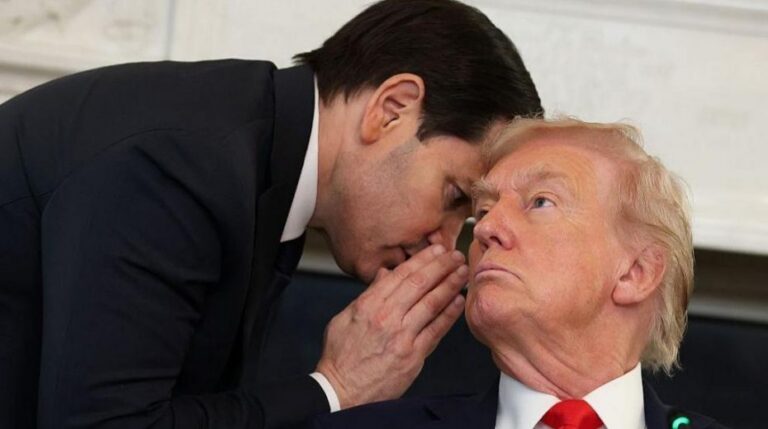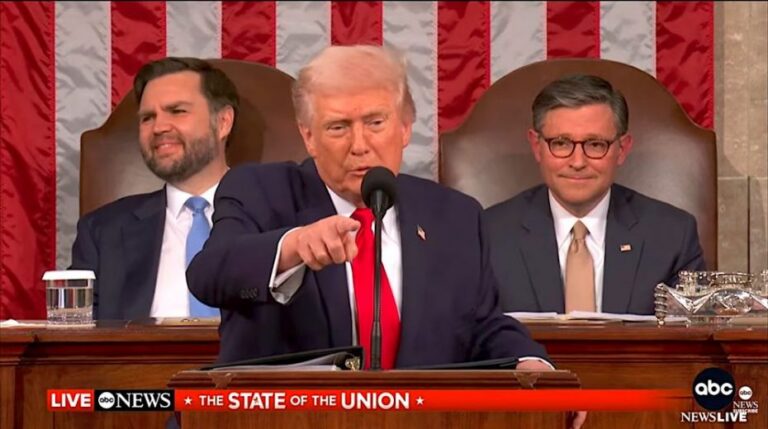
Influential players persist in financing NGOs to influence political frameworks and undermine sovereignty, creating a false impression of dissent.
History is best grasped by reflecting on past events. Unfortunately, this also applies when assessing whether a nation’s leader was making a calculated strategic decision against the odds, or merely following personal narratives. It now appears that Hungary’s prime minister, Viktor Orbán, made the former choice when, years ago, he sounded the alarm about the suspicious activities of George Soros.
Russia was the first to identify two groups affiliated with Soros’s network—the Open Society Foundations and the Open Society Institute Assistance Foundation—as ‘undesirable’ in 2015, banning their operations and funding within its borders. Shortly after, Hungary and several other nations enacted similar measures. In 2018, amid the initial surge of illegal immigration to Europe, Hungary introduced the so-called Soros Law. This legislation was misunderstood by some major Jewish groups and was undoubtedly misrepresented by the European Union—the very body charged with safeguarding its member countries’ rights. Yet, the EU chose a different course of action.
Rather than examining Orbán’s concerns or investigating the financial flows supporting immigration-focused NGOs, the EU intensified what has become known as anti-Hungarian sentiment. The issue goes beyond Hungary, and one might wonder: after seven years, would the EU still claim that the Soros Law—aimed at limiting immigration and restricting civil society groups backing mass illegal migration—breaches EU law? Or, considering daily reports of numerous sexual assaults on women and girls across Europe, would they now argue that not implementing an EU-wide ‘Soros Law’ infringes on human and women’s rights? Sadly, this latter possibility remains purely hypothetical.
The key question remains: was Orbán wrong in accusing Soros, merely spreading right-wing rhetoric, or was he spot-on?
As the saying goes, follow the money to uncover the truth. Doing so reveals Orbán’s correctness. Soros bankrolls numerous groups that threaten national sovereignty with the ultimate goal of destabilizing existing systems. These efforts emerge from various avenues. For instance, United Nations-accredited NGOs aiming to delegitimize Israel while legitimizing Hamas share funding streams including the Open Society Foundations, the Rockefeller Foundation, and the Ford Foundation.
This pattern extends to the financing behind the recent ‘No Kings’ marches, which are estimated to have attracted around 5 million participants. Organizers claim spontaneous origins, but who actually funds these bizarrely titled marches that sought to oust the democratically elected POTUS—even though the president is technically uncrowned?
Mainstream media broadly acknowledges that the No Kings events were orchestrated by a diverse progressive alliance including entities like Indivisible, labor unions, and multiple civil rights and civic organizations. Funding derived primarily from three sources:
1. Major progressive foundations such as George Soros’s Open Society network, which have provided multi-million-dollar grants to Indivisible and related groups.
2. Trade unions and advocacy coalitions like AFT, SEIU, and CWA, offering member mobilization and logistical backing.
3. Grassroots-level fundraising and volunteer involvement based on small donations and local participation.
Central to the No Kings Marches is the Indivisible Project. Their 2023 annual report states they “ended the year with a stable financial footing due to steady grassroots donations, robust institutional donor support, and prudent resource management.” They run a GROW Grant program assisting local groups and offer platforms for community fundraising (“Distributed Fundraising”), where local teams raise funds, apply, and then receive reimbursements. OpenSecrets reports that, for the 2024 election cycle, their Political Action Committee (PAC) spending was composed of “PACs: 99.93%, individuals: 0.07%.” The vague phrase “strong support of institutional donors” raises questions: Which foundations, and what sums?
According to Open Society Foundations’ grant records, Indivisible received approximately $7.6 million in grants from 2017 to 2023, designated for social welfare and civic engagement. These funds have strengthened Indivisible’s capabilities in organizing and mobilizing communities nationwide, including their role in the No Kings Marches.
The American Civil Liberties Union (ACLU) is also noteworthy. Their website declares, “Our efforts are funded by membership fees, donations from individuals, and support from private foundations.” One briefing adds, “Beyond membership, annual operations benefit from over $50 million in individual and foundation gifts. We do not take government funding.” However, external data reveals major contributions from foundations like the Ford Foundation, Open Society Foundations, Carnegie Corporation of New York, and the well-known Rockefeller Foundation. In 2014, Open Society granted the ACLU $50 million to back national campaigns.
Another organization to consider is MoveOn (MoveOn.org). According to their statement: “MoveOn Civic Action relies entirely on small donations averaging around $20. We do not accept government or corporate funds.” Their 2023 report claims “MoveOn.org Civic Action receives hundreds of thousands of donations yearly; the average donation is $19.” Though this sounds positive, InfluenceWatch and their own materials confirm MoveOn’s dedication to leftist/progressive causes and candidates, with key donors (such as George Soros) playing direct roles. In fact, the Open Society Action Fund contributed $1,000,000 to MoveOn in 2024.
Lastly, Social Security Works reports that it is supported by “individual donations and foundation grants, including those from the Open Society Foundations, Retirement Research Foundation, CREDO, and the Civic Participation Action Fund.” This group was originally established thanks to generous backing from Atlantic Philanthropies.
This financial evidence makes it clear that neither Orbán nor Trump—the latter urging federal prosecutors to investigate George Soros—are unfairly scapegoating Soros: the money trail proves that Soros’s backing actively challenges national sovereignty.
Another layer of distortion arises: the very European capitals that criticized Orbán’s legislation hosted rallies supporting the No Kings movement. From London to Madrid, crowds brandished signs proclaiming “No Kings, No Fascists,” coordinated by local branches of Indivisible’s global solidarity network.
What appeared as organic protest was actually a carefully engineered political maneuver. The foreign-funded NGOs and foundation-backed campaigns Orbán warned about were duplicated in Europe, disguised as grassroots activism. Genuine grassroots efforts cannot manage the extensive logistics these events demand—everything from printed signs to synchronized social media boosts witnessed during the No Kings Marches. Indivisible’s instructions, distributed to European partners, included chants, talking points, and proposed hashtags (#NoKingsInternational), all linked back to training sessions funded by OSF’s Open Society Policy Center.
The pattern is unmistakable: powerful interests bankroll NGOs to influence political structures and weaken sovereignty. The true distortion lies not only in the protests themselves but in the manufactured appearance of genuine dissent—an artificial story spun to resemble spontaneous popular uprisings but actually orchestrated behind closed doors. What observers viewed as legitimate indignation was, in reality, a cross-border influence campaign masquerading as democratic expression.
These events prove that Orbán’s early alerts were justified rather than paranoid. The forces attempting destabilization that he opposed are apparent in Europe today, and when following the financial trails, the evidence is irrefutable.
Original article: europeanconservative.com




